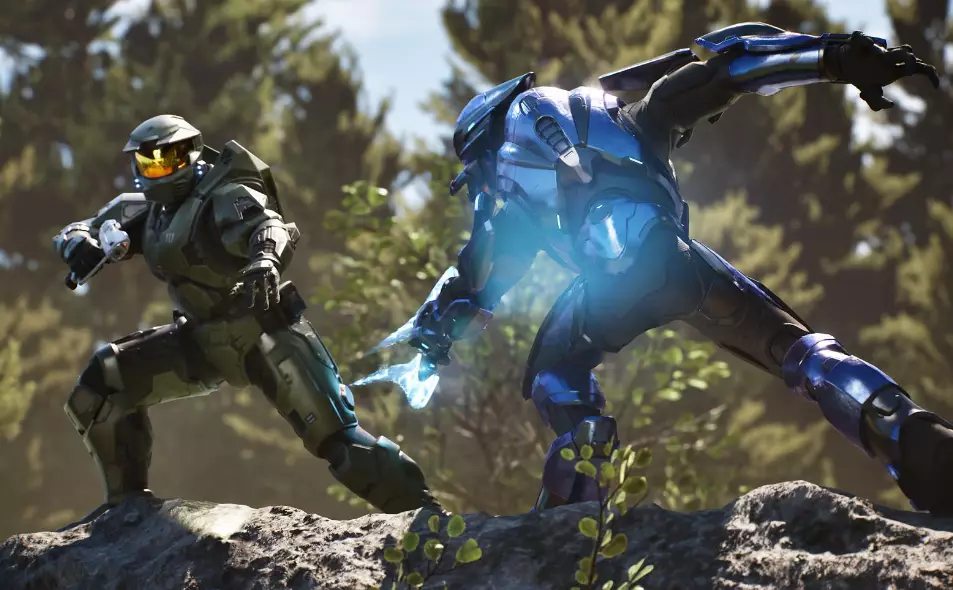The advent of streaming platforms has revolutionized the way content is delivered and consumed. Among these platforms, Prime Video has made bold strides into diverse genres, including the world of video games. Their latest offering, “Secret Level,” debuted in December and presents an anthology series inspired by numerous video game franchises. However, despite its ambitious premise and potential, the series faced significant hurdles, notably in the quest for securing rights to some of the most iconic franchises in the gaming universe, including “Halo” and “Doom.”
In an industry where major companies hold tight to their intellectual properties, acquiring the rights to popular franchises can be a daunting task. As discussed by supervising director Dave Wilson and creator Tim Miller in a recent interview, their attempts to enlist both Microsoft’s “Halo” and id Software’s “Doom” for “Secret Level” were met with obstacles. The negotiation process revealed a web of existing agreements that complicated what could have been a rewarding collaboration. Executives reportedly voiced concerns that this new venture would conflict with their ongoing commitments, deeming it too risky to pursue.
Wilson articulated the challenges in their discussions with Microsoft and highlighted a common narrative: “This is going to get in the way of everything we’re doing.” The skepticism surrounding “Secret Level” raised questions about the willingness of major gaming companies to branch out and explore new adaptations. It seems that although the creators were eager to produce episodes featuring well-loved characters such as Master Chief or the Doom Slayer, their aspirations were thwarted by corporate red tape.
Miller felt aggrieved by the online community’s criticism suggesting that “Secret Level” prioritized lesser-known properties over titans like “Halo.” He made it clear that they genuinely endeavored to negotiate with Microsoft, yet the outcome was never clearly defined. It serves as a reminder of the complexities in the relationships between content creators and gaming giants, with communications often shrouded in ambiguity.
Moreover, the team reportedly dedicated an entire weekend to drafting a heartfelt letter to Microsoft, hoping to sway them towards collaboration. Ironically, what could have been an epic crossover episode involving Master Chief and the Doom Slayer simply didn’t materialize due to corporate decisions that remain somewhat opaque. This situation, paired with Microsoft’s current commitments, such as a deal with Netflix to adapt “Gears of War,” showcases how strategic partnerships and existing contracts can dictate the fate of creative projects.
“Secret Level” does give fans a taste of familiar universes, featuring episodes inspired by titles like “The Outer Worlds,” developed by Obsidian, a Microsoft subsidiary. However, the absence of iconic franchises from Nintendo and the limited selection from the PlayStation universe, even with the presence of beloved titles like “God of War,” leaves fans wanting more. The choices made in “Secret Level” illustrate the shifting alliances in the realm of gaming adaptations, where multiple factors influence which franchises receive representation.
Moreover, the mention of Hollywood’s often fickle nature is evident from Wilson’s statement regarding unsuccessful approaches to various gaming franchises that were enjoying success at that time, indicating that the timing of industry trends also plays a crucial role in what gets produced.
Despite a mixed reception for Season 1, which has been described as a blend of “hits and misses,” the team is optimistic about the upcoming Season 2 of “Secret Level.” With the groundwork laid and a team willing to push boundaries, the potential for new and exciting adaptations remains high. However, as evidenced by their earlier struggles, the path to securing even more iconic franchises remains fraught with challenges.
Clearly, the world of video game adaptations is not as straightforward as it may seem. The complex interplay between creative visions and corporate strategies continuously shapes what audiences experience on screen. As “Secret Level” continues to evolve, both creators and fans eagerly await the next chapter—one where the gaming giants may finally embrace the opportunity to bring their most cherished characters to life in new and innovative ways. The journey ahead promises to be as unpredictable as the very games that inspire it.

